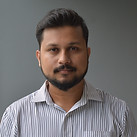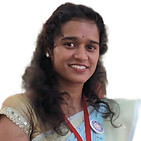
An ancient model
on the cutting edge
A brief history of the
Indian Education Model
The mission of Akshar Foundation is to spread the Indian Education Model throughout the world.
The Indian Education Model is the foundation of an ancient system of knowledge gathering and transmission, a continuous culture spanning nearly 5000 years in the past to the present. The Indian tradition can be contrasted with the Occidental tradition of the West, which emerged from Ancient Greece. The Occidental tradition believes in mind-body separation. The mind is treated as a separate entity, the focus of Western education.
The Indian model of holistic education promoted by Akshar Foundation dates back to antiquity, a model that develops the whole child, mind, as well as body. The Indian Education Model views mind-body separation as false, an assumption which modern science is increasingly confirming. As such, education was designed to focus as much on abstract academics (Languages, Maths, Science, etc.) as on practical arts and hands-on learning — experiential learning, skills development, and physical conditioning by developing muscle memory. Boiled down to its simplest form: Learning by Doing.
The Indian tradition balanced mind and body to produce and export quasi-secular knowledge systems like Buddhism, Yog, and Kung-Fu all over the world. Hu Shih, a late scholar and former Ambassador of the Republic of China to the US once stated, “India conquered and dominated China culturally for 20 centuries without ever having to send a single soldier across her border”. This cultural hegemony extended to most of Asia, not only China. Today, these ideas are gaining more and more prominence in the West, including a mainstream belief in holistic approaches, Gandhian Ahimsa (non-violent protest), Eastern medicine, Eastern philosophy, Karma, and “Yoga”.
The Indian tradition exported the counting system that the whole world uses, decimals that cycle through 10 digits — forming the basis of modern algebra and all modern mathematics and science — as well as producing major innovations in the foundations of mathematics, physics, medicine and other sciences.
Schrodinger, Heisenberg, Bohr, and Oppenheimer were among the chief founders of Quantum Physics, the field of science which split the atom and birthed the transistor, creating the dual Nuclear Age and Computer Age that we live in. Their ideas about the nature of reality emerged from the mathematics, but when they needed the concepts to understand their equations, to understand Quantum Mechanics, they turned to the Indian knowledge tradition for conceptual clarity.
Erwin Schrödinger, known for “Schrödinger’s Cat”, a thought experiment explaining the counter-intuitive quantum superposition of particles, reportedly said “The unity and continuity of Vedanta are reflected in the unity and continuity of wave mechanics.”
Werner Heisenberg, known for the Heisenberg Uncertainty Principle dictating the quantum mechanics of sub-atomic particles reportedly remarked, “After the conversations about Indian philosophy, some of the ideas of Quantum Physics that seemed so crazy suddenly made much more sense.”
Niels Bohr, who created the atomic model used by scientists, reportedly stated “I go into the Upanishads to ask questions.”
India contributed many founders of modern physics as well, including Satyendranath Bose, the founder of Quantum Statistics who collaborated with Einstein and after whom the sub-atomic particle known as a “Boson” was named, as well as many others like Raman, Chandrasekhar, and Ramachandran. Few so-called “Third World Nations” could boast such major contributions to modern science, despite being hobbled by colonialism.

The Indian tradition was the foundation of Mahatma Gandhi’s Nai Talim education philosophy, which failed to become official policy during his lifetime. We believe this is because Nai Talim in practice at the time was too rigid, and failed to adapt to the modern requirements of a nation-state.
So, the nation opted to implement the Western model instead, leading to the creation of world-renowned centers of excellence like the Indian Institute of Technology, which export scientists and engineers all over the world, but which suffer from staggering inequality and neglect the needs of the average student.
Since then, NGOs and schools like Anand Niketan Akhil Bhartiya Nai Talim Samita, and Akshar Foundation, among many others, have worked to promote the adoption of the Indian Education Model. At Akshar, we believed the Indian Education Model should be based firmly in Indian Philosophy, but also integrate the best parts of the Western tradition, like modern science and technology.
In 2019, the Indian Model at Akshar went viral in news outlets all over the world. Niti Aayog, the apex public policy think-tank of the Government India, as well as the United Nations, and the World Economic Forum all showed their support for Akshar's Indian model in press releases and social media.
In 2020, the Prime Minister Narendra Modi announced India's new National Education Policy (NEP 2020), to create the modern Indian Model of Education, and beginning the shift to schools based on the Indian tradition.
In 2021, the Government of India agreed to adopt the Akshar NEP 2020 model in five schools in Assam, as a pilot for state-wide implementation.
In 2022, the Government of India conducted in-depth assessments of Akshar Forum, our experimental model school, as well as other schools and gurukuls throughout India based on the the Indian Model of Education. A few weeks later, Prime Minister Modiji announced PM SHRI Schools, 14,500 schools based on the new Indian Education Model. Green schools with a holistic approach, focused on vocational skills development and mastery of technology. The paradigm has shifted.


Ideas can spread around the world
The Indian Model in the News
Akshar on Social Media
Gallery
In loving memory of

Shaila Asave
Guiding Light and Mentor for Akshar Foundation
Trustees

Prof. Alaka Sarma
Founder & Managing Trustee/ Executive Director

Co-Founder/ Associate Director (Operations)

Co-Founder/Associate Director (Curriculum)
Advisory Board

Cpt. Raghu Raman
Leadership Consultant,
Adani Group
Fmr. CEO, National Intelligence Grid

Raageshweri Loomba Swaroop
Mindfulness Author & Speaker
Accomplished Singer & Actress

Dr. Holly Shaw
International Council of Nurses, Representative to the United Nations DGC

Chetna Sinha
Founder, Mann Deshi
Co-chair, World Economic Forum, Davos '18
Board of Consultants

Himanshu Agarwal
Akshar CFO (pro-bono)
Partner, NC Karnany & Co.

Mihir Bharali
Senior Software Engineer, Walmart Global Tech

Samudra Sarangi
Akshar CLO (pro-bono)
Partner, Law offices of Panag and Babu

Miguel Galaz
General Manager, Prime Matter Consulting

Sylvie Levitae
Cloud Architect, VP Akshar US Board of Directors

Keesha Jones
Philanthropy Consultant, Akshar Foundation US

Founder, KEWO
Akshar Government School Liaison, Madhya Pradesh
Central Office

Manager
Human Resources


Karabi Borah
Monitoring & Evaluation Manager
Kalyan Jyoti Borah
HR Officer

Pranjal Roy
Admin & Maintenance Officer

Chimpi Boruah
Asst. to The Director

Lead
Learning & Development

Senior Accountant

Biswajit Choudhury
IT Officer
_page-0001.jpg)
Muskan Sharma
Learning and Development Executive

Manager
Communication & Collaboration

Nayana Das
Content Editor

Jyotideep Dutta
Communication Officer

Asst Manager
Human Resources

Dikshita Goswami
Accountant

Kaushik Deka
Visual Communicator


Officer, Animal Welfare
Executive Human Resources

Simi Talukdar
Personal Assistant

Satabdi Das
Schools Coordinator
Field Supervisors

Regional Program Manager

Area Program Manager-
Zone Bogibeel

Rashmin Gani Shaikh
Program Manager
Mumbai

Yogendra Singh Chauhan
Program Manager
Varanasi
_edited.jpg)
Subhankar Dey
District Program Manager
Kamrup Rural

District Program Manager
Jorhat

Surbhi Ranjan
District Program Manager
Kamrup Rural

District Program Manager
Dhekiajuli

Assistant District Program Manager
Sivsagar
.jpg)
Dipjyoti Konwar
District Program Manager
Charaideo

District Program Manager
Morigaon

Bhrigu Kumar Rajbongshi
Assistant District Program Manager
Nalbari
Akshar Forum Model School

Akanchha Dubey
Principal

Gitika Rangshal
Junior Teacher

Bipul Phukan
Carpentry Instructor

Munmi Talukdar
School Coordinator

Geetamoni Tumung
Junior Teacher

Razibul Haque
Health Instructor

Gaurav Das
Senior Teacher

Yuvraj Haloi
Junior Teacher

Nishi Sarkar
Groundskeeper

Pallabi Rabha
Maths Teacher

Sumit Brahma
Junior Teacher

Moon Deka
Student Transport/ Chef
Content Team

Nayana Das
Content Editor

Chinmay Kher
Content Writer

Reshma Ahmed
Content Writer
Kamrup Metro(North)

Liza Hazarika
Cluster Coordinator

Puja Baishya
Schools Coordinator

Kasmiri Sarma
Schools Coordinator

Sushmita Paul
Schools Coordinator

Rubi Das
Schools Assistant
Kamrup Metro(south)

Harshita Bhagawati
Cluster Coordinator

Devraj Haloi
Schools Assistant

Rhituraj Talukdar
Schools Coordinator

Puja Gogoi
Schools Coordinator
Kamrup rural (Hajo)

Subhankar Dey
District Program Manager

Priyanka Choudhury
Schools Assistant

Kinkar Jyoti Deka
Schools Coordinator

Schools Coordinator
Jinti Mani Das

Apu Kumar Das
Schools Coordinator

Gitashree Kakati
Schools Assistant

Raktim Kalita
Schools Coordinator

Md Miftahur Hoque
Schools Assistant
.png)
Jitumoni Bhuyan
Schools Assistant
Kamrup rural (RAMPUR)

Surbhi Ranjan
District Program Manager

Nabanita Nath
Schools Coordinator

Schools Coordinator
Priyangana Goswami
_page-0001.jpg)
Rupa devi
Schools Assistant

Schools Assistant
Bhumika Das
Morigaon District

Sandip Choudhury
District Program Manager

Schools Coordinator
Achyut Krishna Medhi

Schools Coordinator
Trishna Bora

Manisha Khataniar
Schools Assistant

Schools Coordinator
Nisha Singha

Schools Coordinator
Ridip Deka

Darpana Medhi
Schools Assistant
Nalbari District

Bhrigu Kumar Rajbongshi
Assistant District Program Manager

Niranjan Kumar Nath
Cluster Coordinator

Ananya Kalita
Schools Coordinator

Dipankar Deka
Schools Coordinator

Apurba Sarma
Schools Coordinator

Amlan jyoti Barman
Schools Assistant

Priyanka Bhattacharjya
Schools Coordinator

Parishmita Lahkar
Schools Assistant

Schools Assistant
Schools Assistant

Jimi Rekha Sarma
Priyanka Das
DhekiaJuli District

Bhaskar Jyoti Lekhok
District Program Manager

Schools Assistant
Edlin Minj

Hitesh Koch
Schools Coordinator

Schools Coordinator
Prakriti Goswami

Schools Coordinator
Prerana Kakoti

Schools Assistant
Kuheli Choudhury

Nayan Jyoti Deka
Schools Assistant
JORHAT District

Hemanga Das
District Program Manager

Angelina Bordoloi
Schools Coordinator

Ankur Borah
Schools Assistant

Bhaswat Gogoi
Cluster Coordinator

Baishali Bora
Schools Coordinator

Isha Thakuria
Schools Assistant

Swagata Devi
Schools Coordinator

Rajib Hatimota
Schools Assistant

Rajkumar Pratah Likhok
Schools Coordinator

Schools Assistant
Porishmita Gogoi

Bhargabh Saikia
Schools Assistant
SIVASAGAR District

Parthapratim Gogoi
Assistant District Program Manager

Bidyut Bikash Gogoi
Schools Coordinator

Santanu Bora
Schools Assistant

Priyanka Borpatra
Schools Assistant

Gitali Baruah
Schools Coordinator

Hironmoyee Dowarah
Schools Assistant

Puja Chetia
Schools Assistant

Chinmoi Changmai
Schools Assistant

Bitopi Borthakur
Schools Coordinator

Risha Priya Chetia
Schools Assistant

Pushpanjali Gogoi
Schools Assistant

Sabrin Rahman
Schools Coordinator

Sanchita Rongpipi
Schools Assistant

Chandika Gogoi
Schools Assistant
CHARAIDEO District
.jpg)
Dipjyoti Konwar
District Program Manager

Schools Coordinator
Chiyangshi Phukan

Schools Assistant
Bhugyan Gogoi

Amlandeep Gogoi
Schools Coordinator

Kamana Deka
Schools Assistant

Ajanita Baishya
Schools Assistant

Schools Coordinator
Jyotsna Dowarah

Parinita Das
Schools Assistant

Shuvajyoti Phukan

Jena Nanda
Schools Coordinator

Progyashree Gogoi
Schools Assistant
Schools Assistant
mumbai team

Rashmin Gani Shaikh
Program Manager

Sejal Devanand Kamble
Schools Assistant

Namrata Ganesh Chavan
Schools Assistant

Anirudh Vinod Patil
Cluster Coordinator

Wahid Shaikh
Schools Assistant

Priyal Gautam Gaikwad
Schools Assistant
.jpeg)
Santosh Natha Kharat
Schools Coordinator

Mohd Mohsin Sayed
Schools Assistant

Aditi Himanshu Trivedi
Schools Assistant

Kiran Dilip Kalekar
Schools Coordinator

Pravin SantoshYede
Schools Assistant
JABALPUR team

Suyarsh Shrivastava
Schools Coordinator
_edited.jpg)
Madhulata Tiwari
Schools Assistant

Priyanka Tiwari
Schools Coordinator

Mausami Gautam
Schools Assistant
Varanasi team

Yogendra Singh Chauhan
Program Manager

Gudiya Pandey
Schools Coordinator


Rohit Lodhi Patel
Schools Coordinator

Vivek Dutt Dubey
Schools Assistant
Komal Nihalani
Schools Assistant
Support Staff- Central office

Arjun Thakuri
Driver

Amar Prasad
Driver

Mahesh Talukdar
Driver
.jpeg)
Nripen Talukdar
Security

Sunita Das
Housekeeping

Leveraging outstanding partners




































































